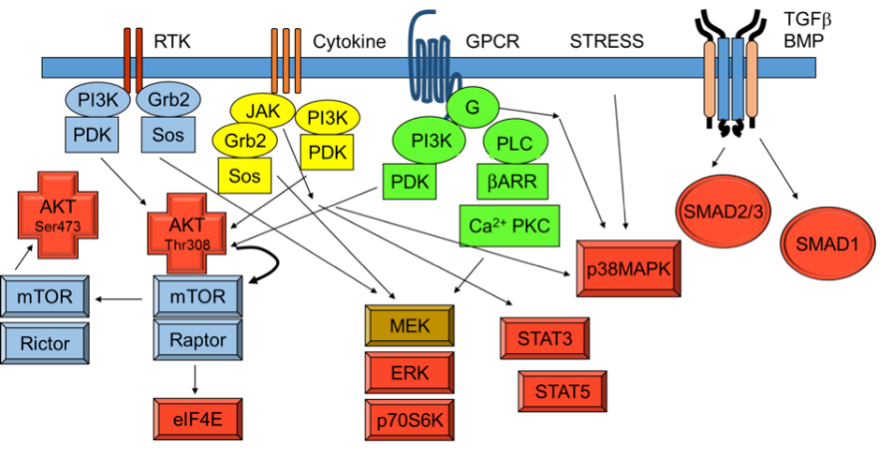In association with Revvity, TGR BioSciences flagship assay product, AlphaLISA® SureFire® Ultra™ caters primarily for the demanding needs of pharma/biotech in drug discovery. Our broad offering of phosphoprotein assays play a key role in with characterization of various cellular processes and disease states and their reliable and sensitive detection helps to advance both drug discovery and basic research.
AlphaLISA SureFire Ultra has been designed to provide exceptional assay sensitivity and greatly enhanced signal windows for kinase screening programs. Measuring endogenous cellular phosphoproteins can now be achieved in all types of cellular extracts, including cultured cells, tissue lysates, and in samples containing high levels of antibodies. Such samples include those where antibody biotherapeutics are being tested for efficacy. In addition, the assays have extremely low background signals, allowing testing of very low levels of pathway activation. Combined with Revvity’s AlphaLISA technology, the SureFire assays provide unmatched performance for phosphoprotein detection.
TGR have developed over 300 AlphaLISA SureFire ULTRA assays (and growing) to support the needs of pharma/biotech and their drug discovery efforts.

